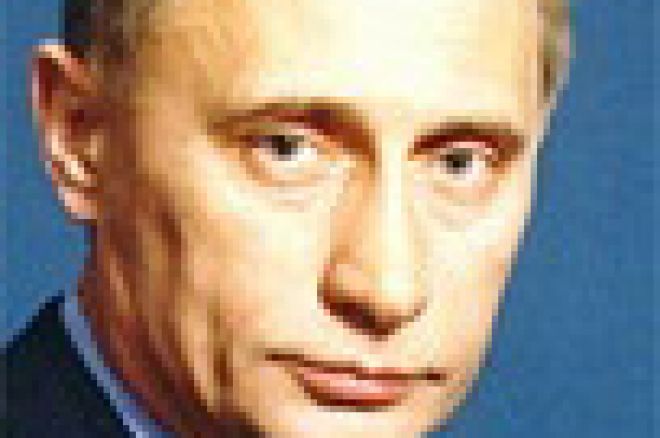Russian poker game is key to survival of UN's Kyoto Protocol

MILAN (AFP) - The fate of the UN's global warming pact appears to hinge on Russia's demands for new concessions, led by President Vladimir Putin drive to join the World Trade Organisation (WTO), experts here say.
Carefree Web Shopping
Have a stress-free online holiday spree, plus gifts off the beaten path and insider shopping secrets.
Specialists at a major conference on climate change say that behind Russia's on-again, off-again noises about ratifying the Kyoto Protocol is the hope of squeezing concessions from the European Union on Moscow's WTO membership bid.
"For Mr. Putin, Kyoto is a secondary consideration," said Alexey Kokorin, head of Russia's climate change programme with the conservationist group WWF.
"What matters to him these days is membership of the WTO. He has placed all his prestige on the line and the big question is whether he can wring European concessions on the WTO in exchange for ratifying Kyoto."
Russia has held the whip hand over Kyoto ever since the United States walked away from the agreement in March 2001. Environment ministers or their stand-ins from 180 countries are due to meet here on Wednesday and Thursday to discuss the future of Kyoto and other climate-change issues.
Ratification by the Duma, the Russian parliament, is essential for pushing the number of industrialised signatories over a key threshold that will turn the draft deal into an international treaty.
Just to get Russia onboard after the US defection so that Kyoto's rulebook could be completed meant the EU had to make enormous concessions to Moscow, and this still rankles in Brussels.
But all through this year, the Russians have blown hot and cold on ratification. At the start of 2003, the only question was when they would do it. By the end, the "when" became an "if".
Some analysts believe this has all to do with infighting within the Kremlin.
Last week, Putin's top adviser on economic issues, Andrei Illarionov, rubbished the idea that Russia would ratify Kyoto "in its current form," only to be contradicted by deputy trade and economic development minister Mukhamed Tsikanov, who said Russia was moving towards ratification.
Behind such squabbles, said Kokorin, is Putin's drive to remove EU obstacles to Russian membership of the WTO.
The EU says that a level playing field has to be made if Russia joins the trade club, notably by increasing domestic prices for gas and electricity and scrapping Gazprom's monopoly of the Russian gas market.
According to Kokorin, Putin told a reporter on November 7 that if the "conditions" set for Russian membership "are unfavourable and the fears that we have about (Kyoto) materialise, it could become too difficult for us" to ratify the Protocol.
The "fears" to which Putin referred no doubt centre on Moscow's shock that a hoped-for financial windfall from Kyoto will now not come true.
Kyoto requires industrialised signatories to cut emissions of six "greenhouse gases" �� mainly the carbon byproduct of burning fossil fuels �� that trap solar heat and, scientists say, are causing Earth's climate to change.
The US pullout, at a stroke, deprived the Protocol of its biggest polluter and biggest buyer of emissions "credits" under a planned carbon market, one of several mechanisms designed to help signatories meet their pollution targets.
Russia had hoped to net billions of dollars by selling emissions to the Americans. It is way below its benchmark figure, which is set in 1990, because the collapse of the Soviet economy also closed down lots of dirty power plants and factories.
Now, though, the likely price of carbon dioxide traded on the future market "is unlikely to be more than four to five dollars per tonne," compared to a previously hoped-for 30-100 dollars per tonne, said Laurent Segalen, climate director with the consultancy PricewaterhouseCoopers.
With its dream of bounty melting away, the Russian economy ministry is lobbying the Europeans and Japan to make commitments about purchasing Russian emissions.







